 Regal Cinema, Cross Gates, Leeds, 1964 During the 1920s and 30s Leeds City Council prepared and implemented plans for the development of the Cross Gates area. In 1920 Cross Gates was a small ex-mining village surrounded by farmland. The plans included new roads, housing estates and retail areas. Part of this was under the catchy title of "The Leeds (Roundhay, Seacroft and Crossgates) Planning Scheme No.3." Under this scheme in 1936 the redevelopment of the area around what was called "Cross Gates Green" started. This was the area now occupied by the Cross Gates roundabout. This involved dualling Cross Gates Road, then a normal width carriageway road with tram tracks on the northern side. Also, a new dual carriageway Ring Road to the north was to be constructed, the demolition of property on the green and a new roundabout to link Cross Gates Road, Cross Gates Lane, the new Ring Road and Station Road to the south. The junction of Cross Gates Road and Cross Gates Lane then became a prime locally significant site which had been designated for dwellinghouses and residential buildings in the scheme. 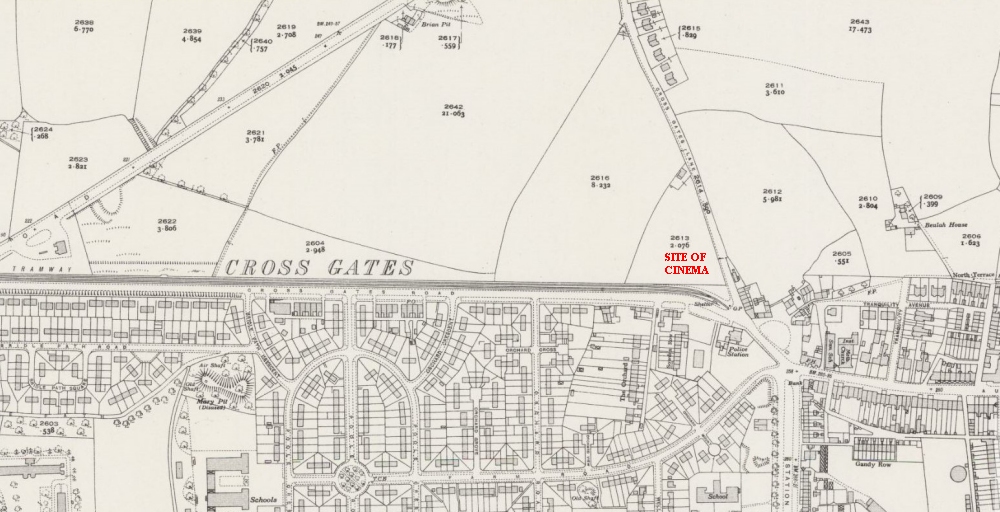 1933 Map showing the Cross Gates Green Area. Messrs. Kenyon & Co (Builders) Limited of Leeds were at the time constructing the housing in the estate behind the site in the Hawkhill's and Brian's and they decided they wanted to branch out and build and run a cinema. The area had had a cinema since 1920 when the Cross Gates Picture House adjacent to Cross Gates railway station opened. Since that time cinema technology had advanced dramatically with the advent of sound and talking pictures. The housing in the district had also increased with much more planned and in the period before television many people had at least 1 or more visits to the cinema a week. 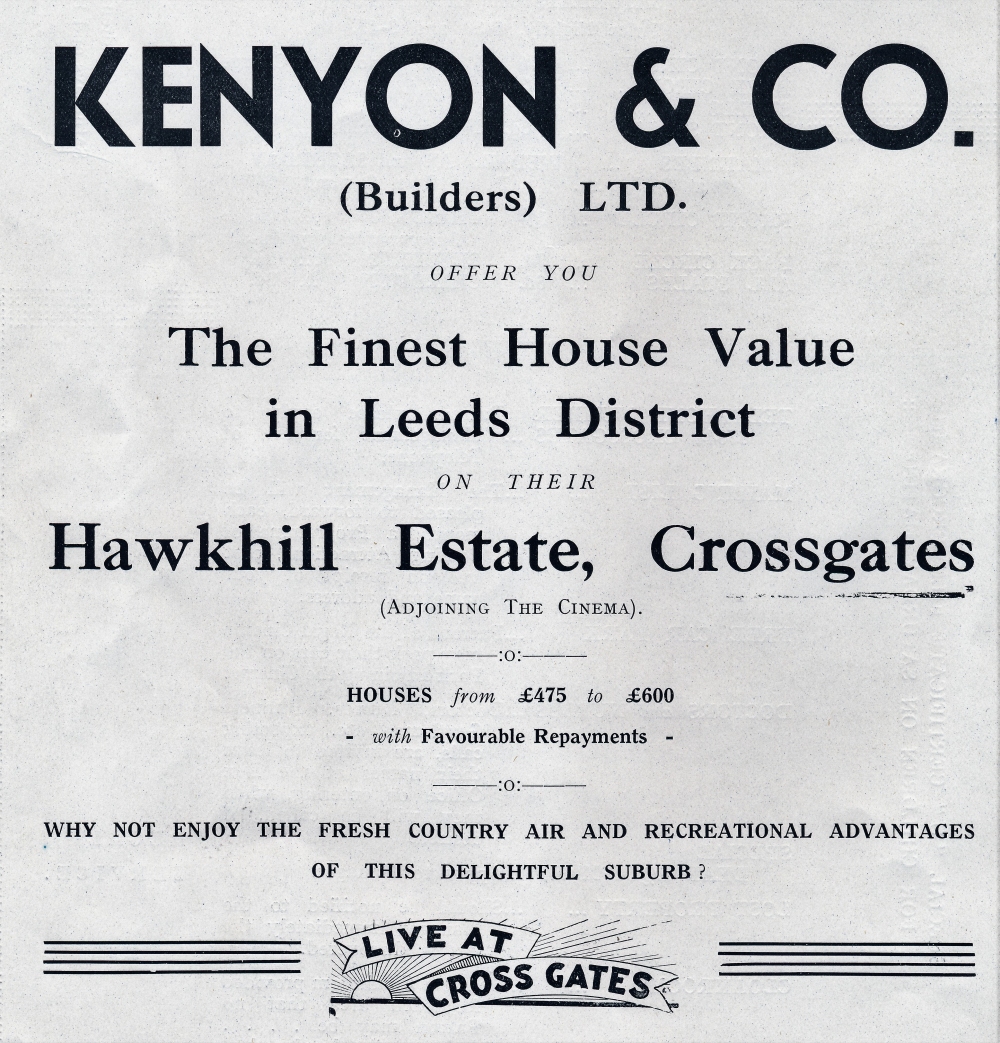 Kenyon Builders at Cross Gates 1936 Kenyon Ltd requested the council's permission to build a cinema and at the Leeds City planning meeting on the 24th March 1936 scheme no. 3 was amended to redesignate a site at the junction of Cross Gates Lane and Road for a cinema and ballroom. The Leeds Police Watch Committee, then also heavily involved in cinema regulation, agreed to the opening of a new cinema at this location at their meeting on the 27th of March 1936. A new company, "The Regal Cinema (Crossgates) Ltd", was formed in May 1936 by J.R. Ainley and J.H. Overton, some of the directors of Kenyon Builders which was to be used to build and manage the cinema. Regal was a common name for a cinema, but I understand the name came from one of the directors and his wife, J. Reginal Ainley and Alice Ainley. 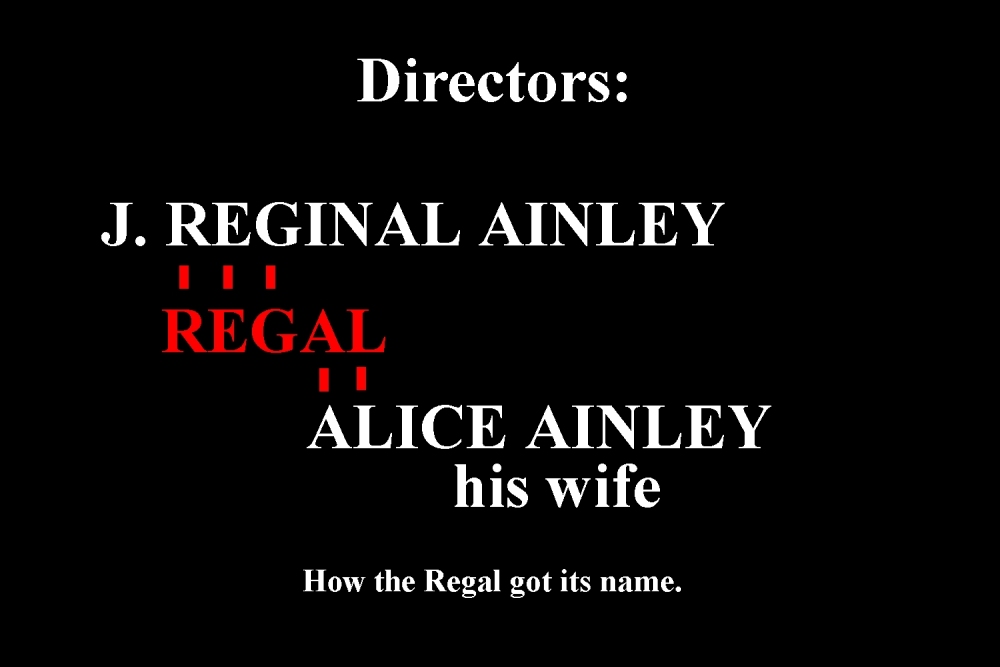 How the Regal gots it's name. The site, at the time just farmland, was owned by the Estate of the Wilson family of Seacroft Hall and was sold to Kenyon & Co Ltd on the 5th August 1936 for £1,500 who then transferred it to the Regal Cinema Ltd on the 1st September 1936. Architect Mr. A. V. Montague designed the cinema with Kenyon & Co Ltd the main building contractors and construction started as soon as approval was given. Excavating and levelling of the site was completed by Otty Bros of Leeds 7. The building contained 200 tons of British Steel supplied by Leonard Cooper Ltd of Hunslet and had a 70-foot roof span. The auditorium length was over 130 feet with a height of 50 feet and a balcony. All floors were constructed using Bison Floors reinforced concrete by Concrete Ltd of Leeds. Bricks were supplied by Warmfield Company Ltd of Normanton. Electrical installations were by Ainley of Roundhay Road (owned by one of the Directors), heating by Modern Heating Company of Oxford Place, Leeds. 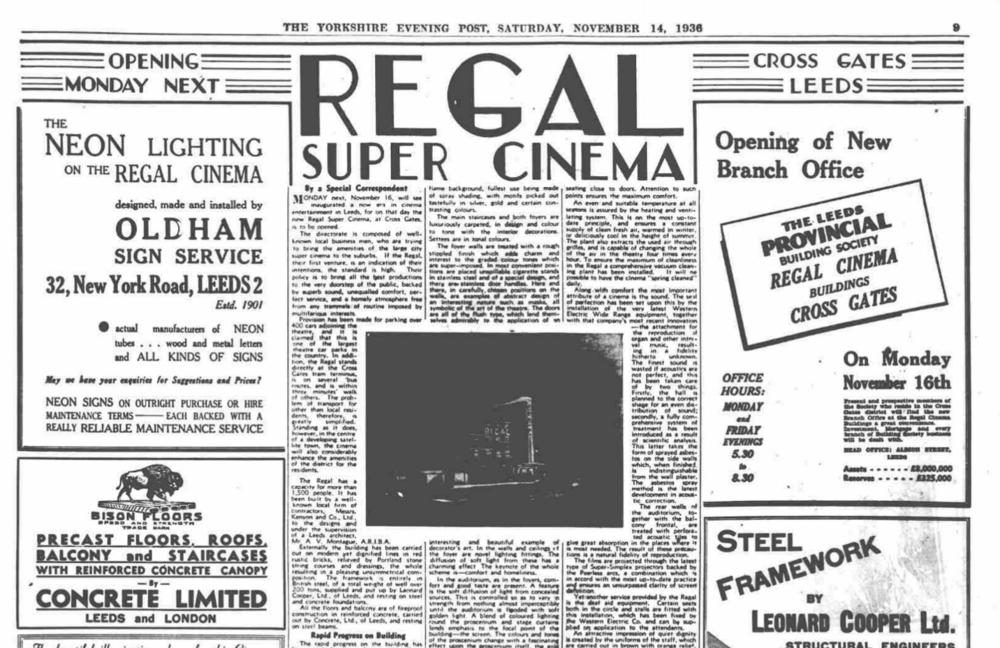 Opening Advert - Yorkshire Evening Post 14th November 1936 The Regal had a seating capacity of 1,500. It had great transport links and was adjacent to the Cross Gates tram terminus and had the largest free cinema car park in the North of England. The sound system installed was from Western Electric, widely regarded as the best in the cinema industry. Special equipment was available for the use of the hard of hearing. It was equipped with latest style of flip up seating, with springs and sponge rubber armrests. Donald A. Burnand was appointed as general manager to run the Regal, he had been the assistant manager at the nearby Shaftsbury Cinema on York Road and had worked in the entertainment business for over 26 years. 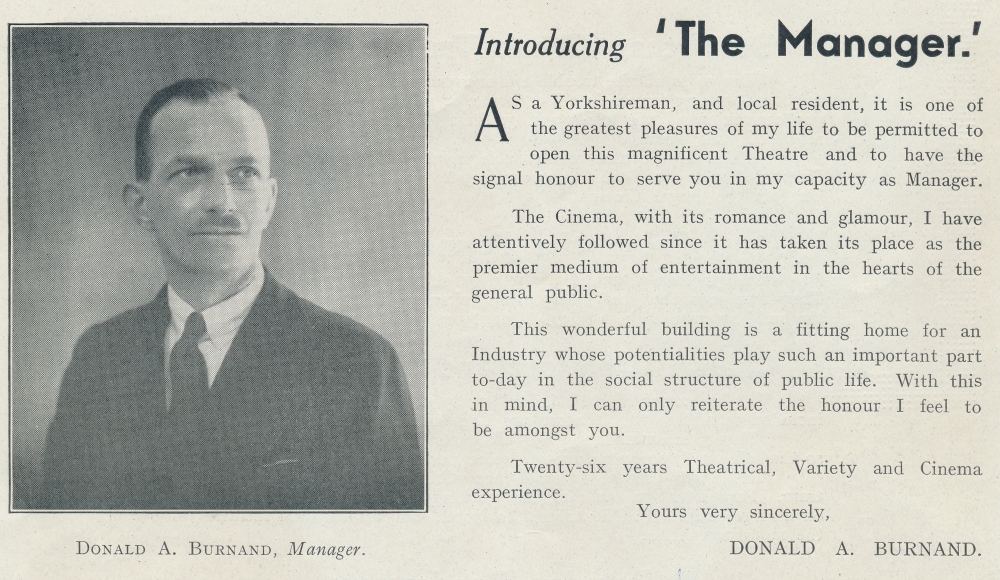 Donald A. Burnand, The Regal's 1st General Manager. Anticipation in the district must have reached fever pitch when it was announced the Regal would open on Monday 16th November 1936. A souvenir programme was produced and distributed to the local houses along with free tickets for the 1st showing. 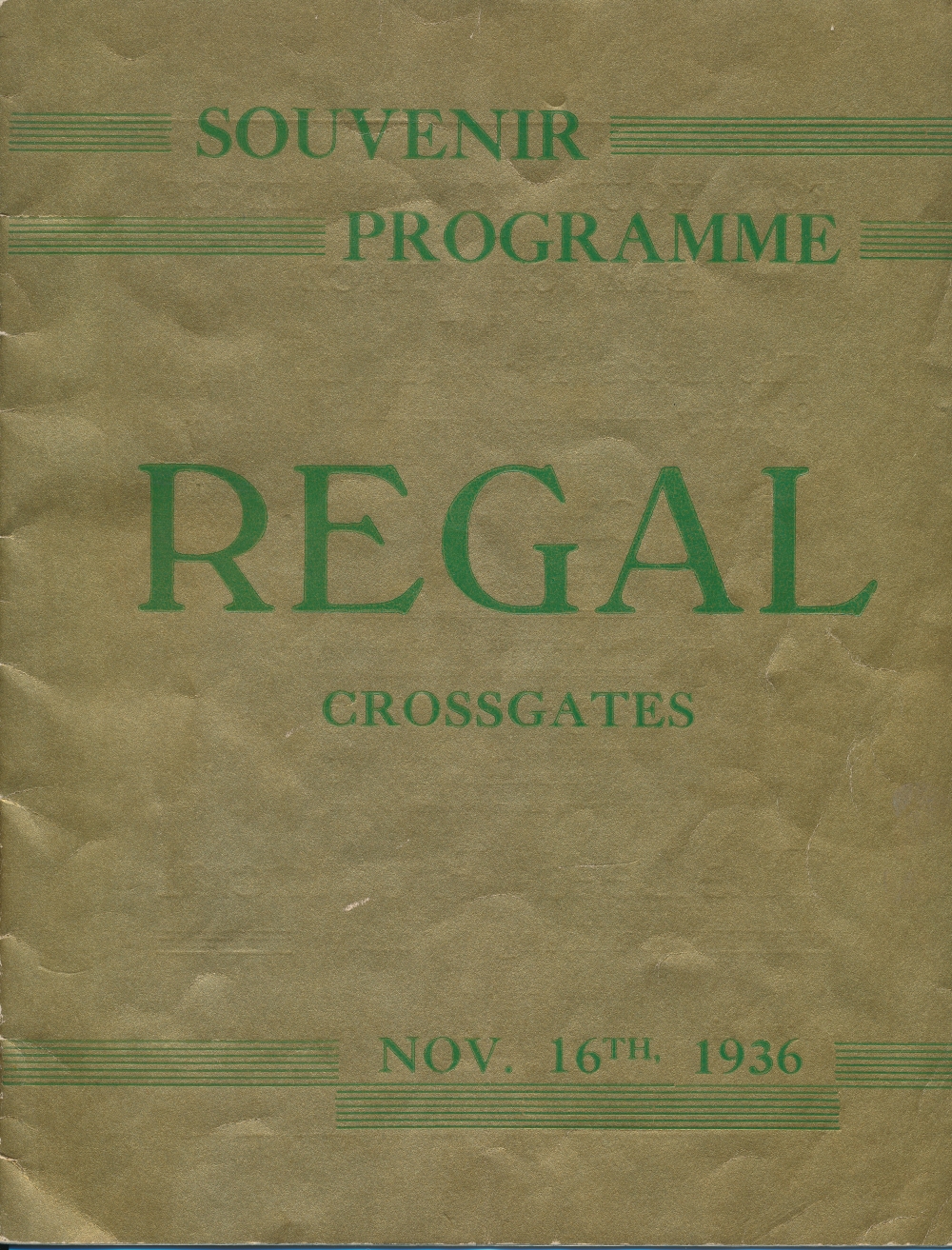 Opening Night Programme. The 1st film shown was Eddie Cantor in "Strike Me Pink" also starring Ethel Merman, Sally Eilers, Parkyakarkus, William Frawley and The Goldwyn Girls. The opening ceremony was performed by Leeds Alderman C. V. Walker as Cross Gates got its "Super Cinema." The cinema attendants were uniformed in brown and orange, the men's uniforms being unusual for having one lapel, the ladies had flared skirts. A confectioner and tobacconist shop was incorporated into the building and was run by C. Stephenson. 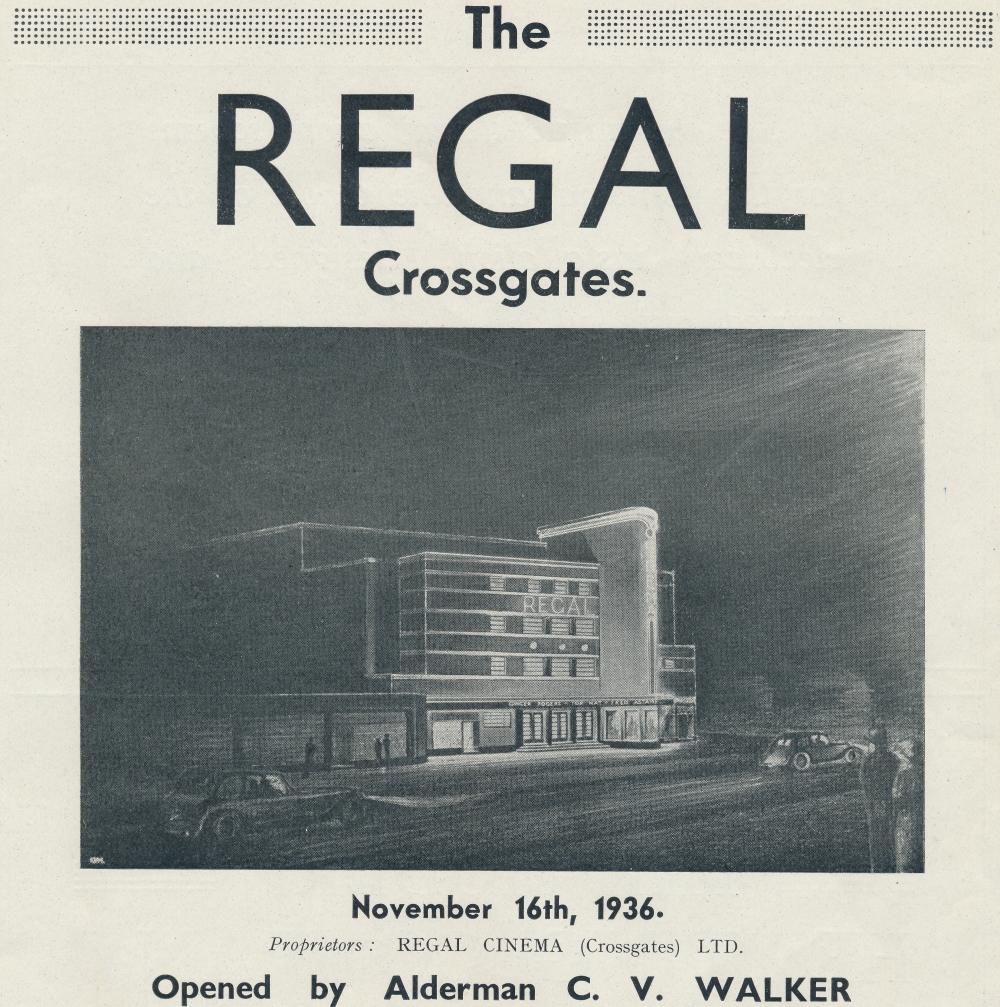 Opening Night Programme. As so the Regal got down to business and in May 1937 the stage in front of the screen was extended allowing more live events to take place. Kenyon & Co Ltd were given permission to built a temporary estate and sales office in the car park of the Regal as they continued developing the local housing estates. General manager Donald A. Burnand left in July 1938 and the cinematograph licence transferred to one of the Directors John Reginal Ainley. In August 1938 approval was given for a covered way to be installed along the side of the building on Cross Gates Lane to provide rain protection for customers waiting to access the cheaper front stalls seats which were accessed through a side door. 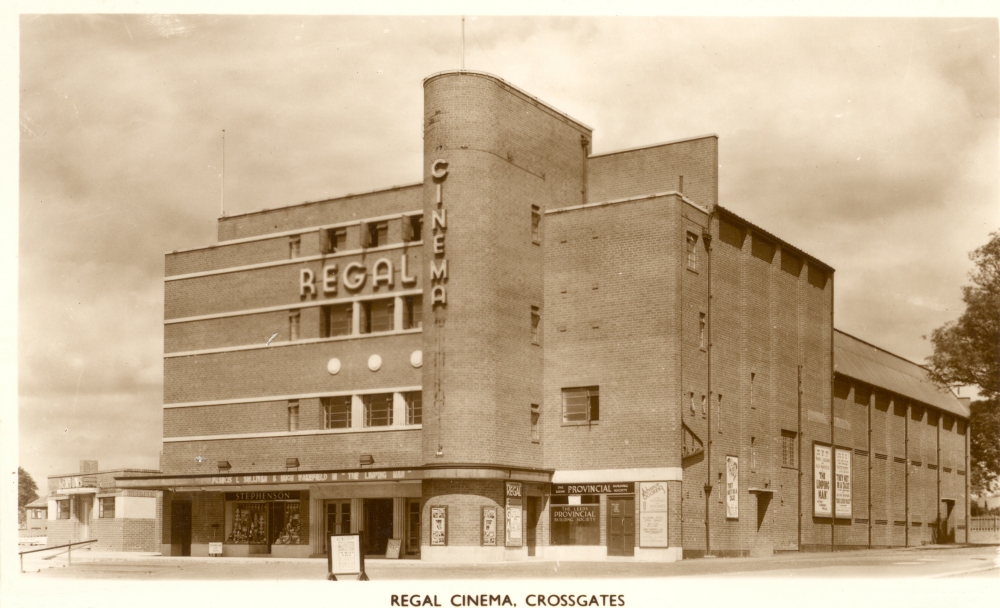 1937 view showing the Kenyon Sale Office to the left of the cinema. The local competition "The Cross Gates Picture House" on Station Road obviously started to feel the pinch of a nearby super cinema and was sold and closed in the summer of 1938 for a full modernisation and refurbishment, re-opening on the 19th September 1938 as "The Ritz." 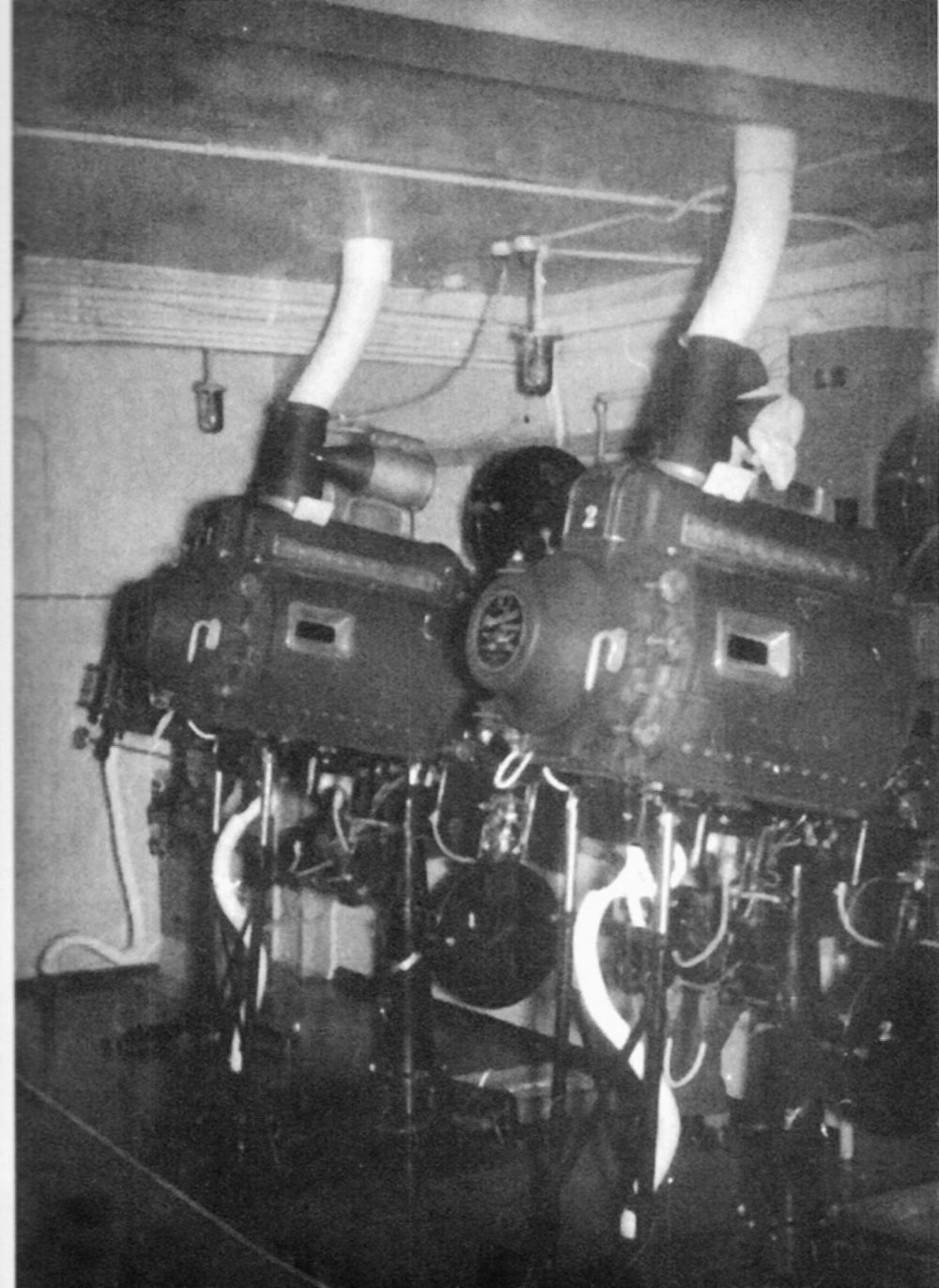 The Regal Projection Room. During late 1938 and early 1939 various plans were put forward and finally agreed for the construction of 10 lockup shops with flats above along the side of the car park on Cross Gates Road, replacing the sales office of Kenyon Ltd, these were constructed and became Regal Parade, these still exist today. 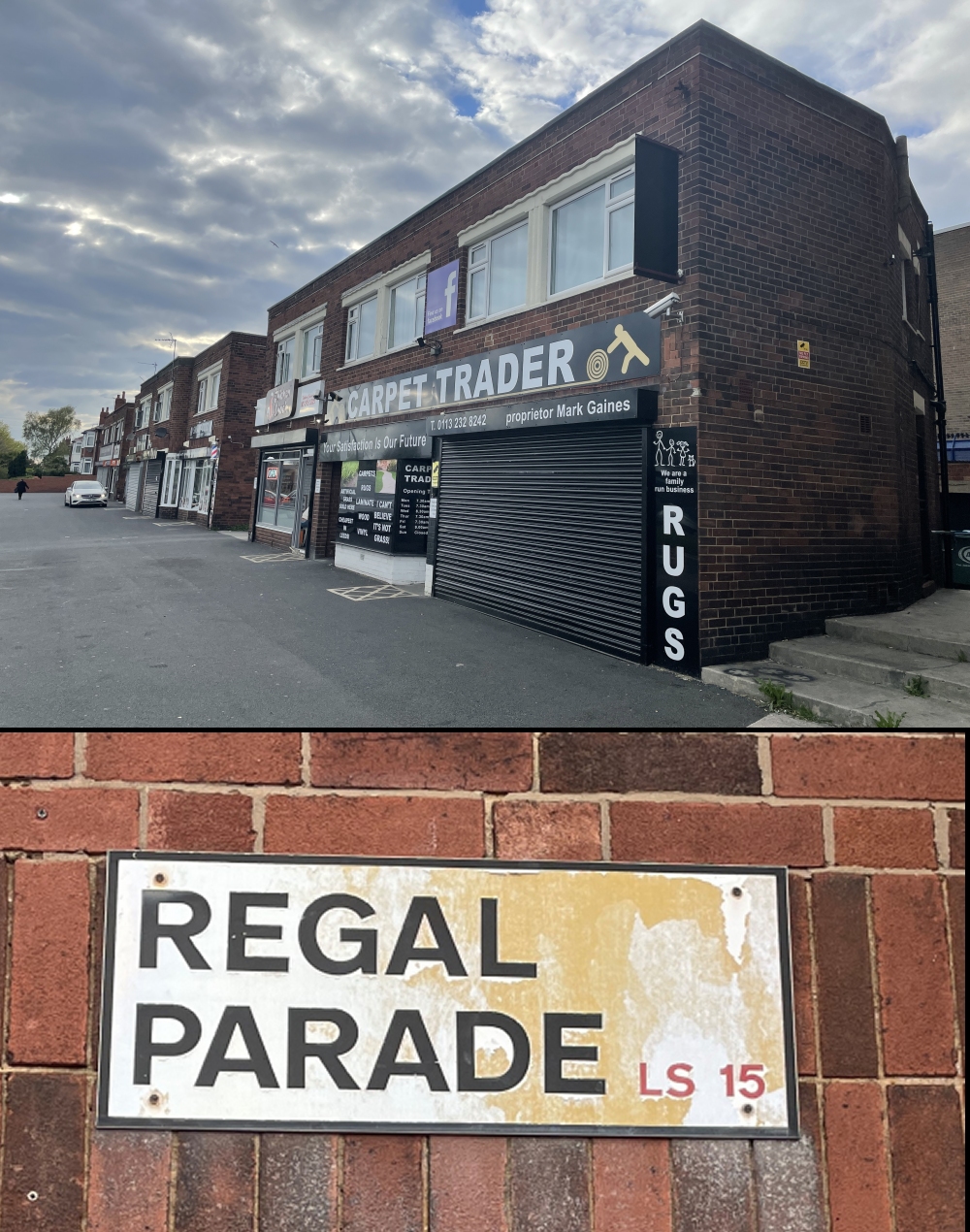 Regal Parade in 2022, built 1939. During the second world war of 1939-1945 the Regal held several concerts to raise money for the British Red Cross. At this time the cinemas in Leeds did not open on Sundays. The 1932 "Sunday Entertainment Act" of Parliament had allowed Sunday opening if a local public meeting or poll voted in favour and a levy was paid on each ticket sold for charity. This had been resisted for some time with the Leeds Council of Churches absolutely against it. Then in early 1946 the Local Labour party on Leeds Corporation proposed it and at a public meeting the vote went strongly against it, the Labour Party then demanded a full town poll. On Tuesday 19th March 1946 voting took place with an overwhelming majority in favour of opening although on a very poor turnout, perhaps indicated it was not the most important issue for people who had just emerged from the 5 years of World War II. Whilst the City Centre cinemas took advantage as soon as the necessary licensing arrangements had been made, the suburban cinemas were slow to take it up, the levy maybe making it commercially unattractive. The earliest Sunday reference I can find for the Regal is from the 15th December 1950 when the Leeds Police Watch Committee approved the granting of a licence to John Reginald Ainley for entertainments on Sundays. 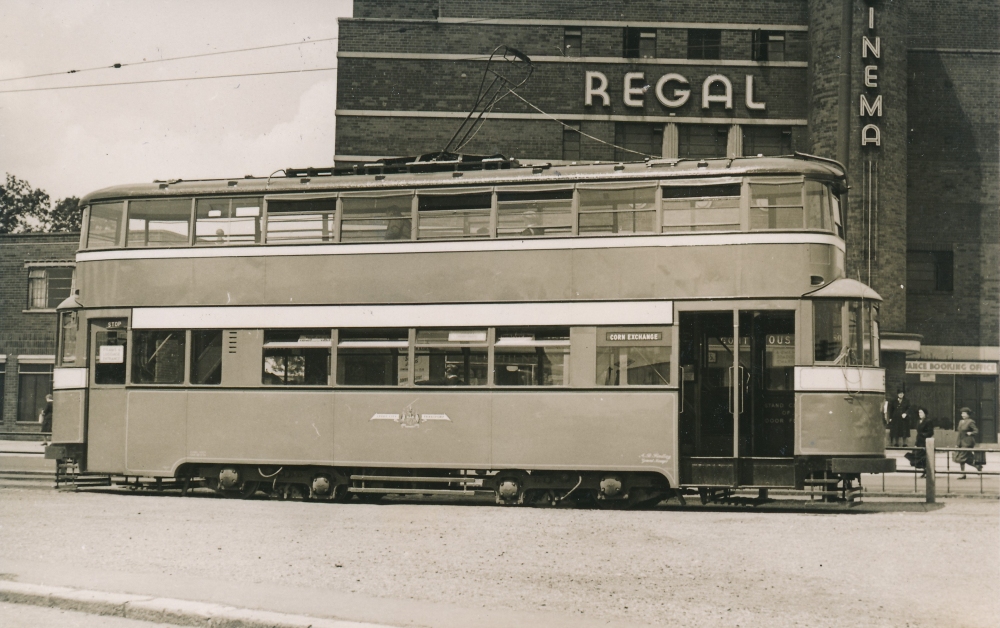 Leeds City Tram outside the Regal. Additional toilets at the front of the auditorium were approved in August 1946 and minor amendments to the booking office in February 1947. 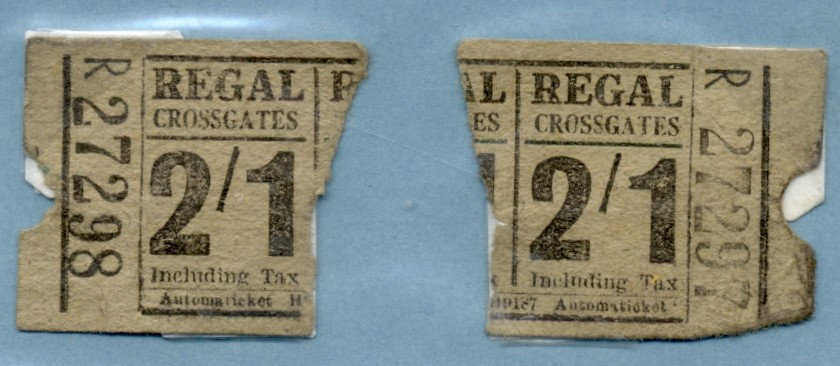 1950s Regal Tickets. The Regal's Managing Director, John Reginald Ainley, of Montagu Crescent, Leeds died suddenly in April 1952 aged only 53 and the cinemas entertainment licence was transferred to his widow, Mrs. Alice Gorrell Ainley in May 1953. 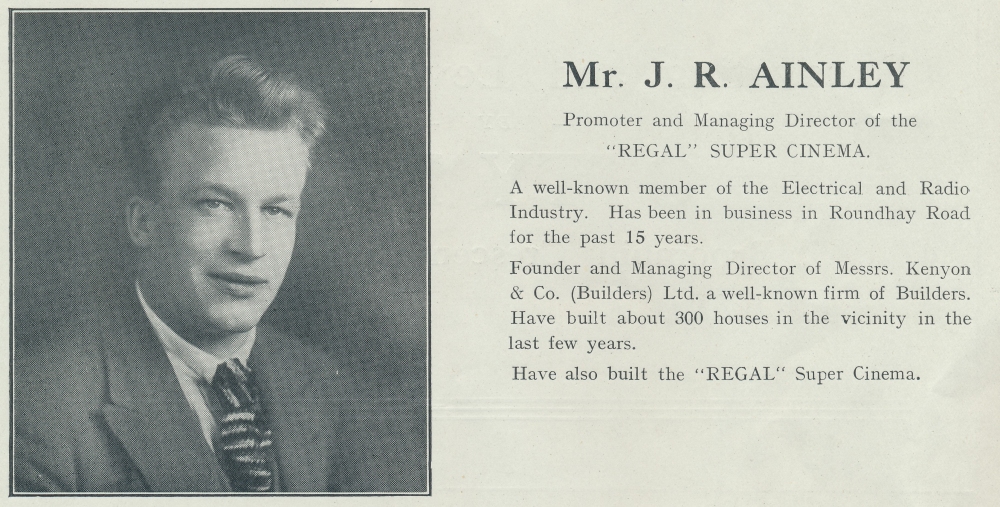 John Reginald Ainley, Regal's Managing Director 1936-1952. The early 1950s signalled the start of a long decline in the Cinema trade due to the arrival of television entertainment beamed direct into people homes. On the 12th October 1951 the Holme Moss transmitter in West Yorkshire was switched on enabling the north of England to receive BBC television pictures and on the 3rd November 1956, Emley Moor transmitter entered service bringing Independent television to the Yorkshire region. 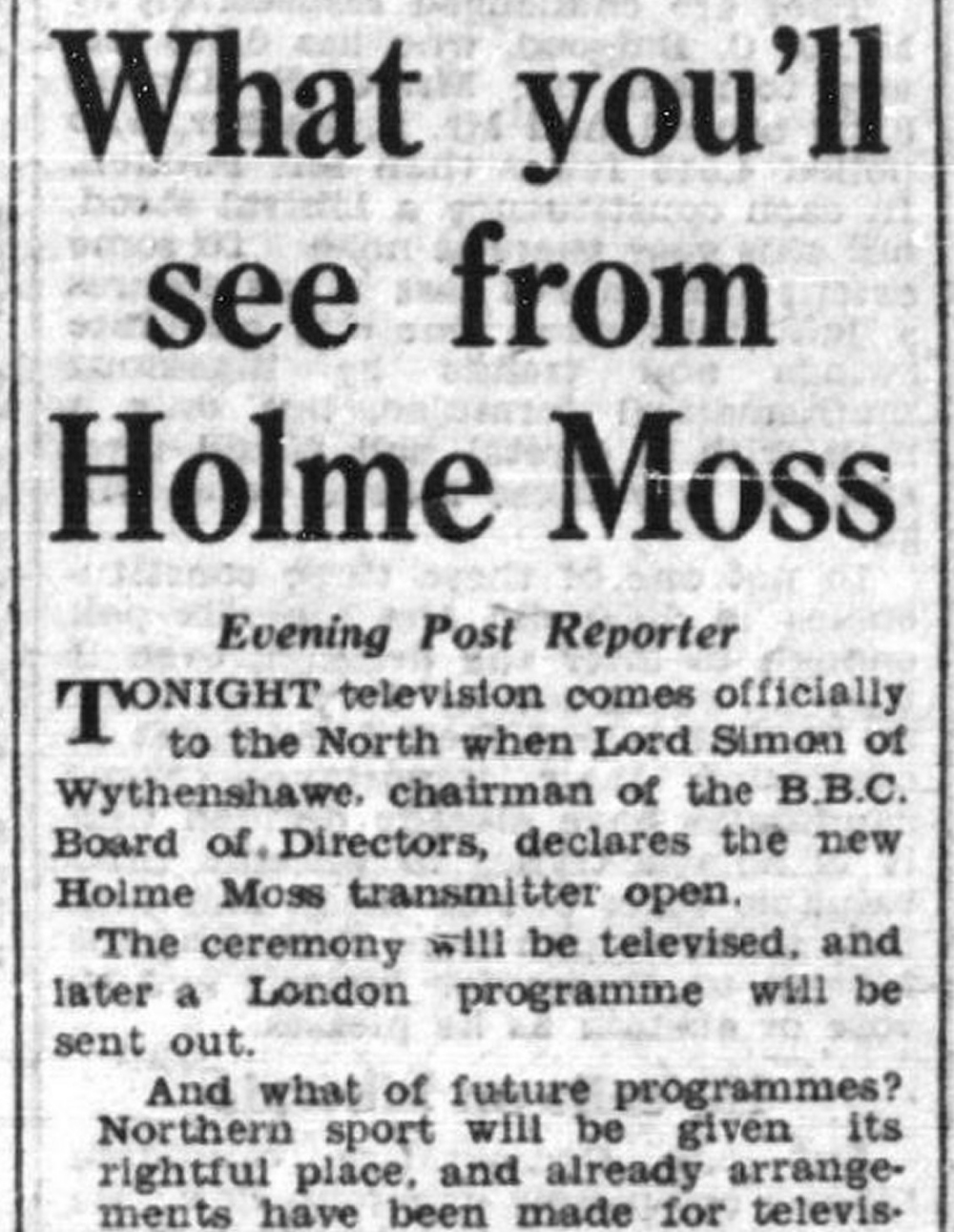 BBC TV comes to the North - Yorkshire Evening Post Friday 12th October 1951. One event which cemented the rapid take up of television was the live broadcasting of the Coronation of Queen Elizabeth II on the 2nd June 1953. Televisions could be rented on weekly terms, and for many households, it was the end of the weekly or more visit to the flicks. 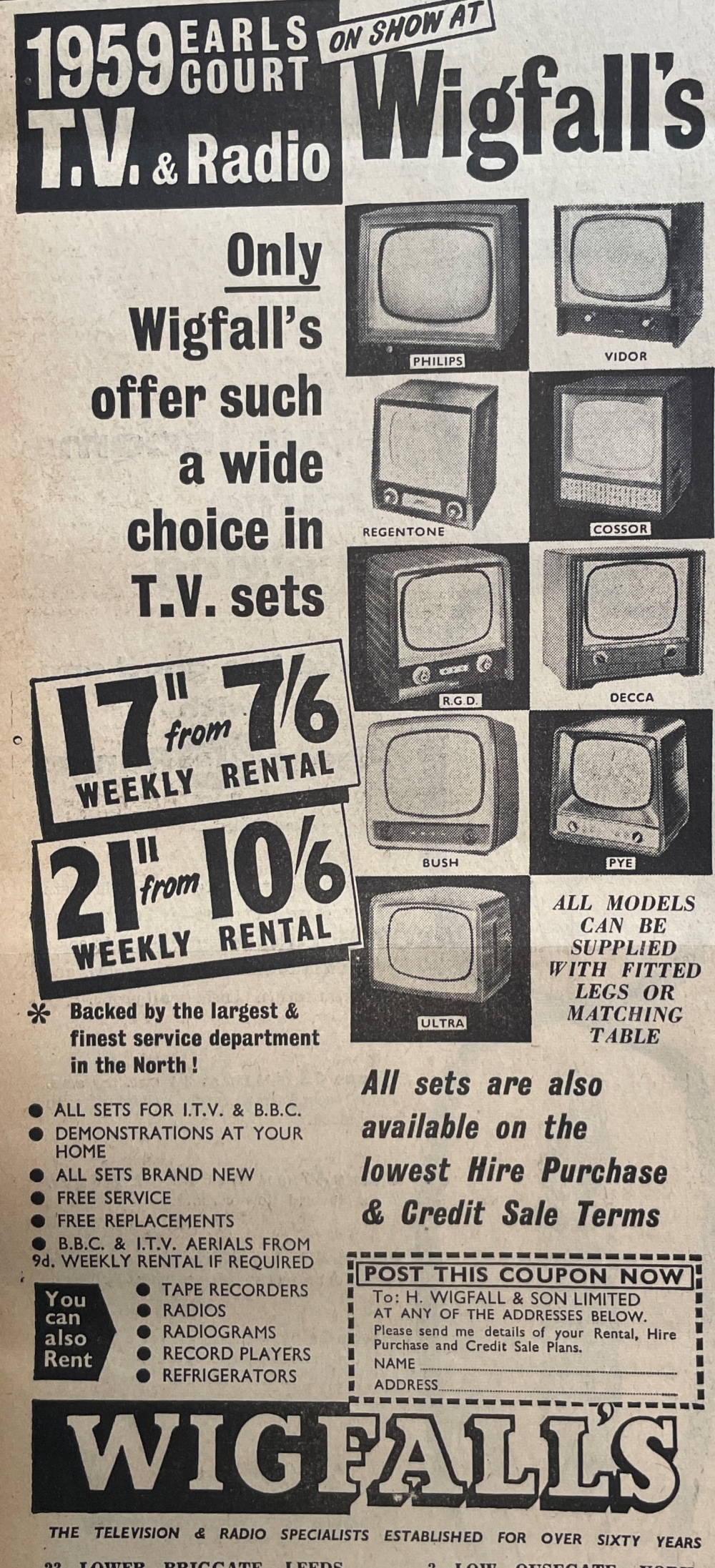 Rental TVs at affordable prices - August 1958 The Regal fought to keep customers and in September 1954 announced, "This Cinema will shortly be equipped with CinemaScope - Full Stereophonic Sound - The First Film: THE ROBE." CinemaScope was a widescreen picture and compared to the then tiny black and white mono television screens available must have been amazing. However, the phenomenon, which was television marched on, people preferring to stay at home with only occasional visits to the cinema. 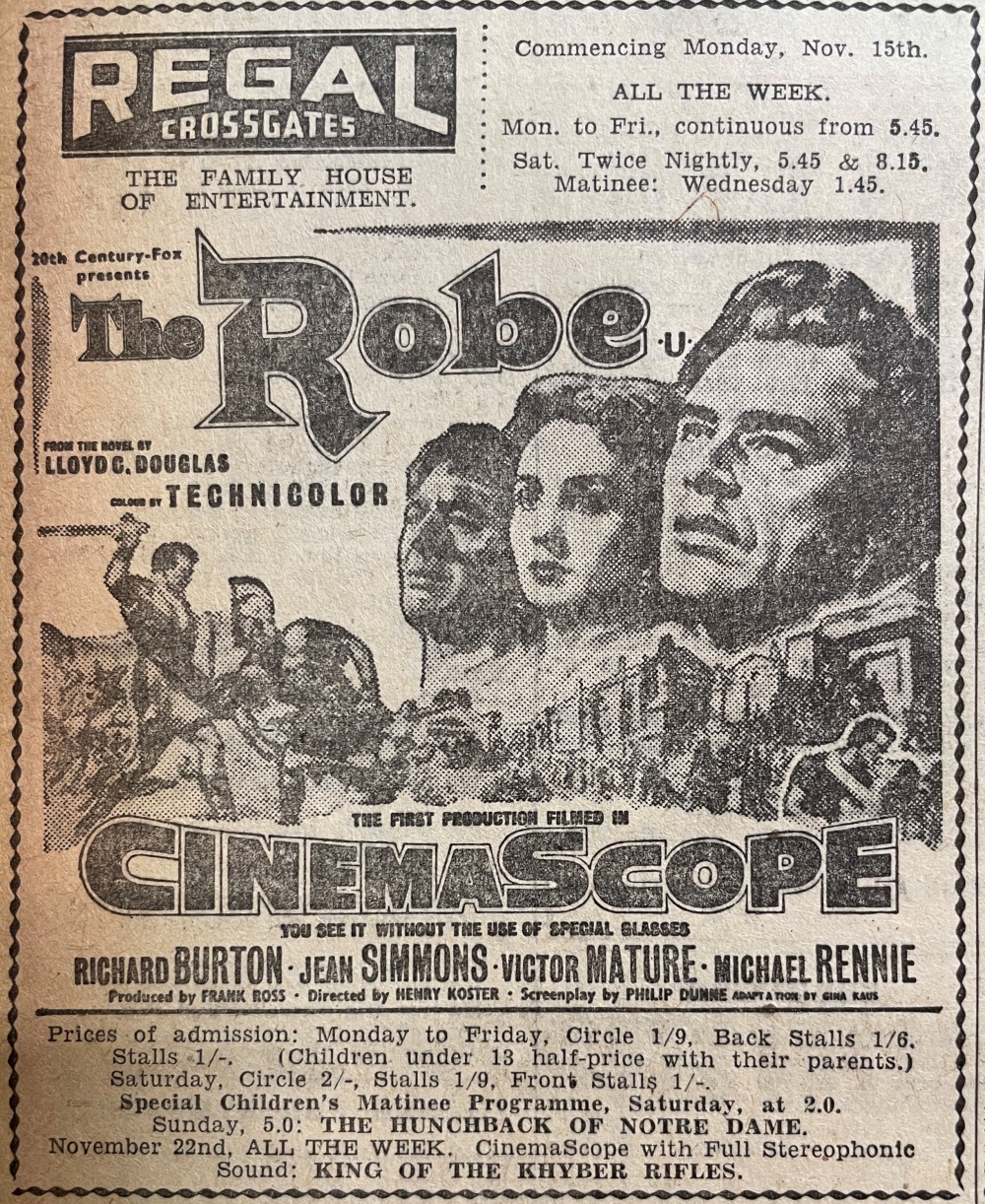 Cinemascope comes to the Regal - November 1954. More events to entice customers into the cinema were held, a Yo-Yo Top competition held in March 1958 at the Saturday children's matinee. "Donald Duck's Xmas Party" in the same year at Christmas. 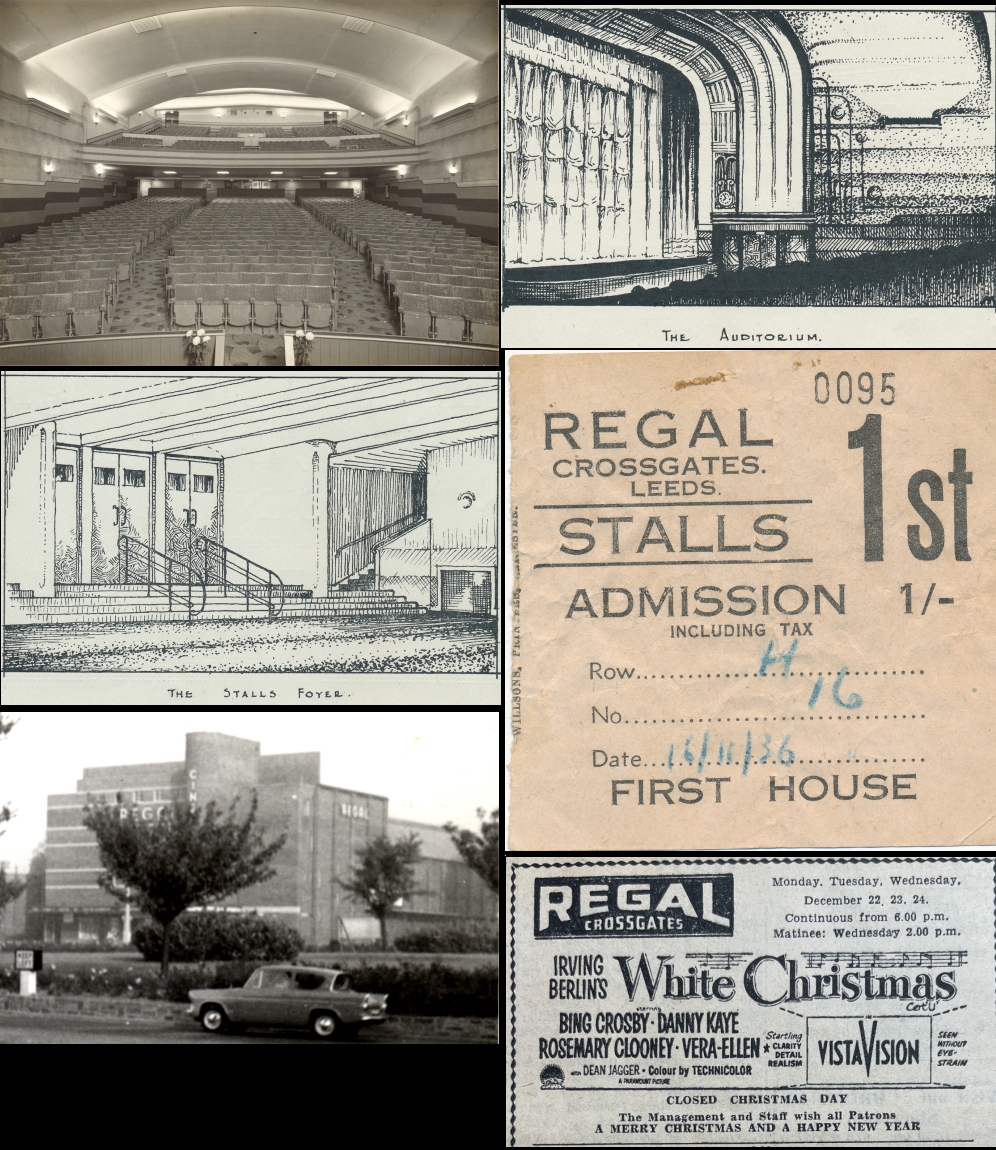 The Regal, Cross Gates. In 1958 a rumour spread round Cross Gates that the cinema was to be converted into a ballroom and Mrs Ainley denied the story to the local newspaper. The cinema struggled on for a few more years but in late 1963 was sold to Plus Investments Limited of Haymarket, London for redevelopment. It closed for business on the 11th January 1964 with the last film been the D-Day epic war film "The Longest Day." 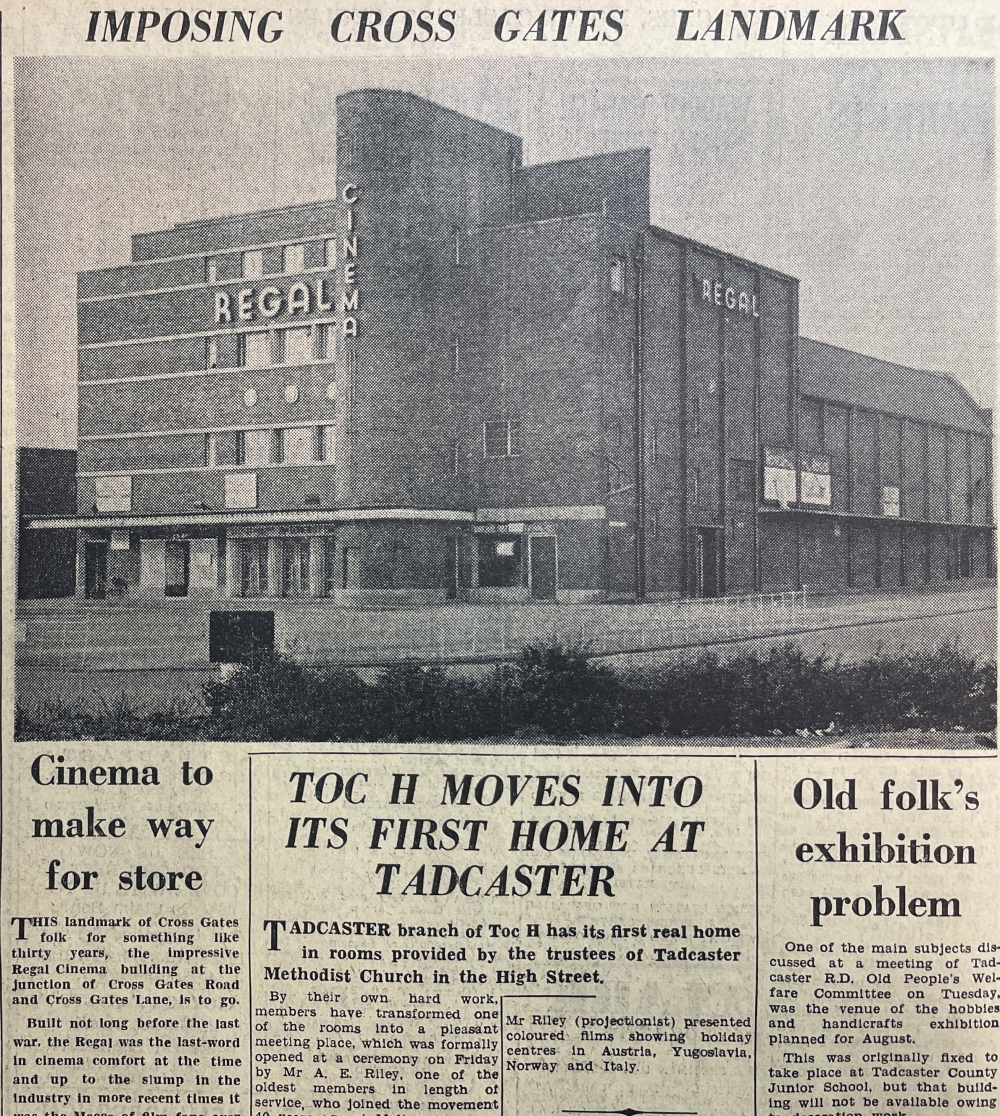 The Regal Closed - February 1964. In February 1964 it was announced that the building would be demolished to make way for a departmental store. There was a lot of resentment in Cross Gates to the decision and a local residents petition with over 300 signatures was raised with the point: "When is somebody going to realise that Cross Gates needs a cinema? Not content with closing down the Regal, rumour has it that "they" are going to close down the Ritz as well, some time in the near future. "They" presumably, are some destructive authority which thinks it is doing us a favour by demolishing all out means of entertainment and replacing them by shops. Don't you think we have enough shops already?" 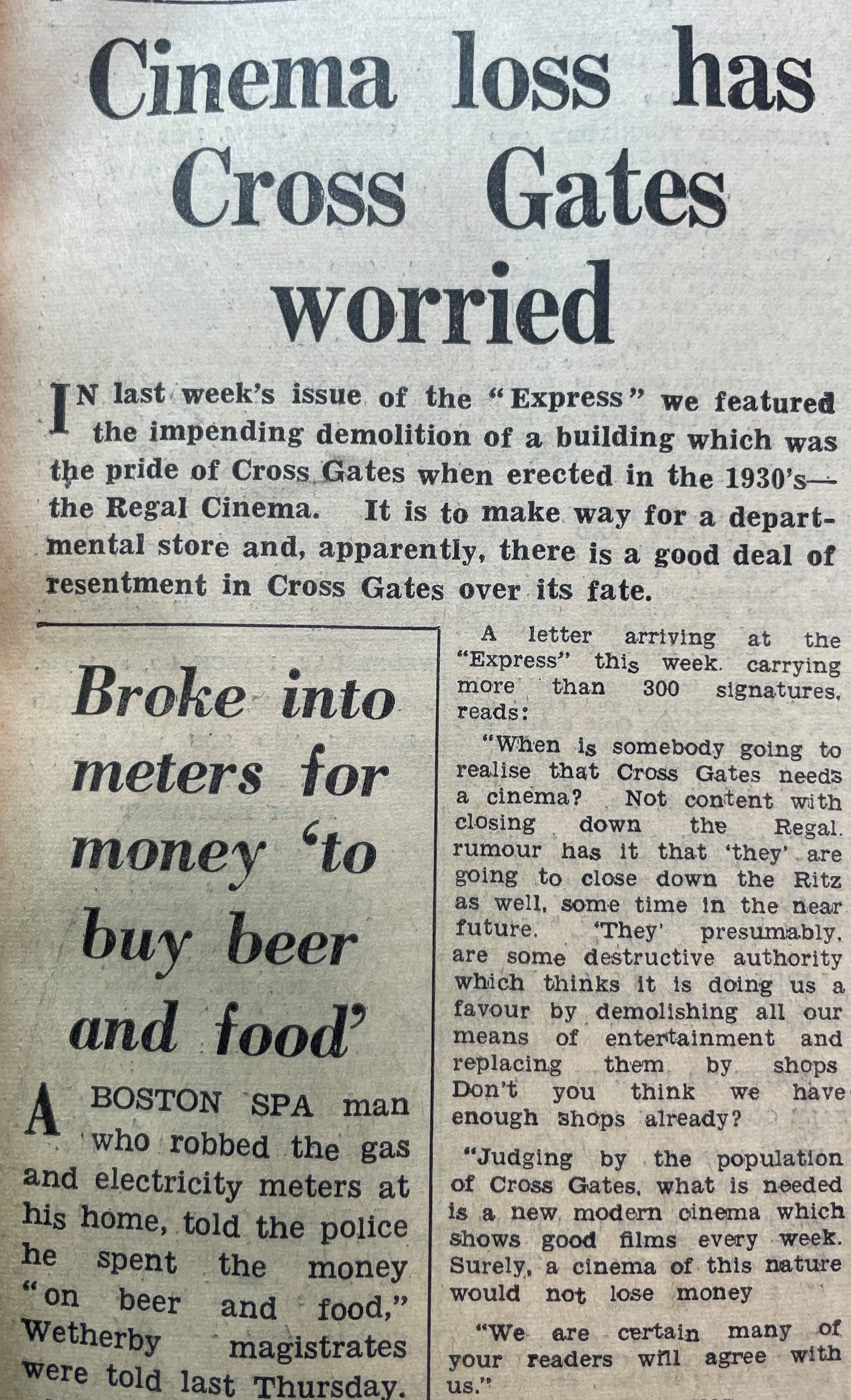 RFebruary 1964. The die was already set and the Regal was quickly demolished during February and March and by the 26th March 1964 was gone. 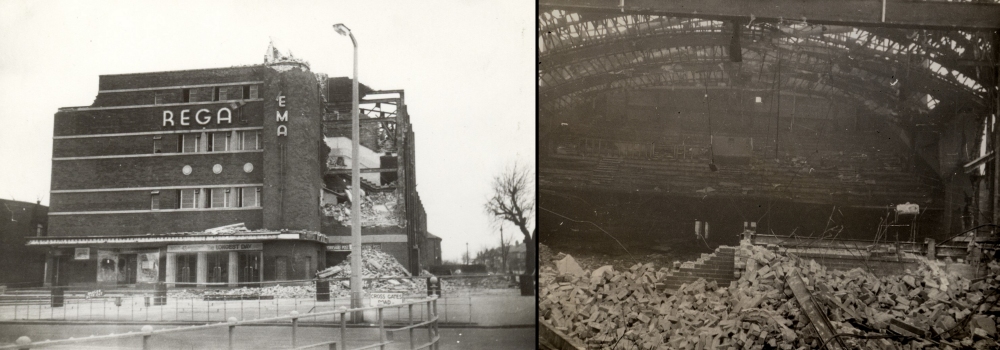 Regal demolition in progress - 1964. The residents were correct about "The Ritz" as well, it lasted just over another year, closing down on the 16th May 1965 and was demolished in 1966. On the Regal site building work quickly commenced on the new store and on the 13th May 1965 the G.E.M. Department Store opened. It had a concept of stores within a store as other retailers rented space within the building. The much-altered premises survive today as the building used by Mecca Bingo and Chiltern Mills. 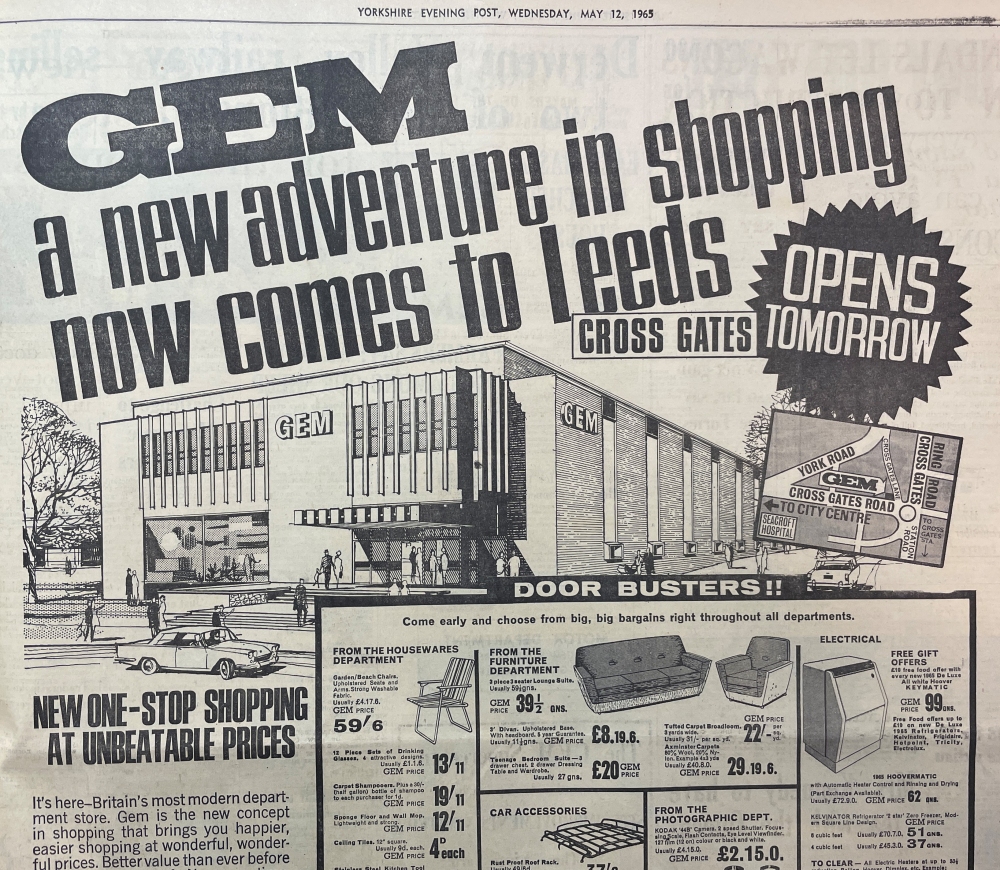 The GEM Store Opens - May 1965. Dave Teal December 2022 Back to the top Back to the Main Historical Society page Back to the Barwicker Contents page |